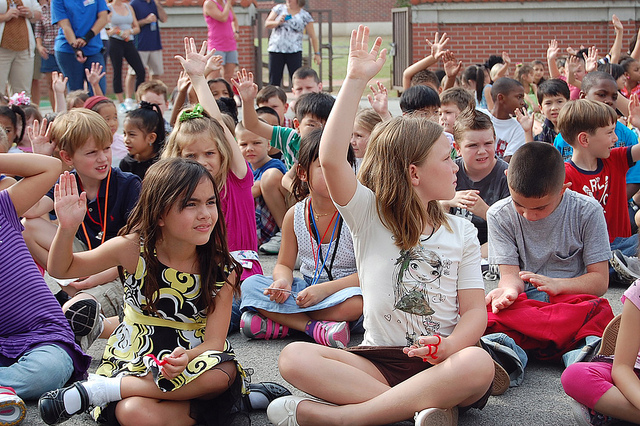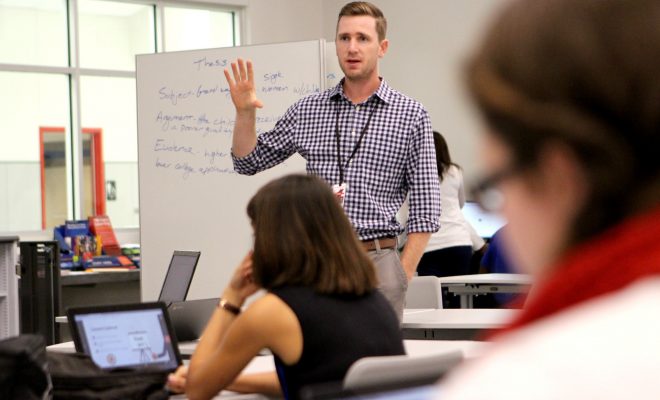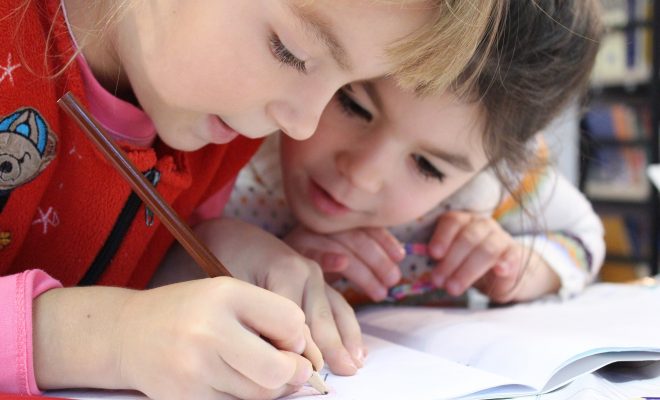Philosophies of Education: 3 Types of Student-Centered Philosophies

Student-centered philosophies are another essential philosophy that educators should be aware of. By focusing on the needs of students, teachers are able to assist and teach students within the classroom ensuring a higher level of student success. In this article three types of student-centered philosophies will be discussed which are progressivism, social reconstructionism, and existentialism.
Student-centered philosophies focus more on training individual students. These philosophies place more emphasis on the individuality of students and helping them to realize their potential. A student-centered classroom may be less rigid or structured, less concerned about past teaching practices and drilling academics, and more focused on training students for success in an ever-changing world. Students and teachers typically decide together what should be learned, as well as how this can best be achieved.
Progressivism is based on the positive changes and problem-solving approach that individuals with various educational credentials can provide their students. Progressivist educators are outcome focused and don’t simply impart learned facts. Teachers are less concerned with passing on the existing culture and strive to allow students to develop an individual approach to tasks provided to them.
John Jacques Rousseau (1712–1778) and John Dewey (1859–1952) are the guiding minds of progressivism. Rousseau maintained that people are basically good and that society is responsible for corrupting them. He supported education in nature, away from the city and the influences of civilization, where the child’s interests (as opposed to a written set of guidelines) would guide the curriculum.
John Dewey proposed that people learn best by social interaction and problem solvin. Dewey developed the scientific method of problem solving and experimentalism. As a result of the varied opinions emerging from the movement, progressivism was not developed into a formalized, documented educational philosophy. Progressivists did, however, agree that they wanted to move away from certain characteristics of traditional schools. In particular, they were keen to remove themselves from the textbook-based curriculum and the idea of teachers as disseminators of information, in favor of viewing teachers as facilitators of thinking.
The progressivist classroom is about exploration and experience. Teachers act as facilitators in a classroom where students explore physical, mental, moral, and social growth. Common sights in a progressivist classroom might include: small groups debating, custom-made activities, and learning stations. Teachers typically walk freely among the groups, guiding them using suggestions and thought-provoking questions.
Social reconstructionism is an educational philosophy that views schools as tools to solve social problems. Social reconstructionists reason that, because all leaders are the product of schools, schools should provide a curriculum that fosters their development. Reconstructionists not only aim to educate a generation of problem solvers, but also try to identify and correct many noteworthy social problems that face our nation, with diverse targets including racism, pollution, homelessness, poverty, and violence. Rather than a philosophy of education, reconstructionism may be referred to as more of a remedy for society that seeks to build a more objective social order.
Outraged at the inequity in educational opportunities between the rich and the poor, George Counts wrote Dare the School Build a New Social Order? in 1932. He called on teachers to educate students to prepare them for the social changes that would accompany heightened participation in science, technology, and other fields of learning, without compromising their cultural education. This text was important in the development of social reconstructionist schools in the United States. For social reconstructionists, the class becomes an area where societal improvement is an active and measurable goal.
The reconstructionist classroom contains a teacher who involves the students in discussions of moral dilemmas to understand the implications of one’s actions. Students individually select their objectives and social priorities and then, with guidance from the teacher, create a plan of action to make the change happen.
For example, a class may read an article on texting while driving and watch a documentary on the need for awareness in school systems. In addition, a police officer or a loved one of someone who has been affected by texting while driving may speak to the class and describe dangerous and/or fatal events that have resulted from choosing to text while driving. If the article, the movie, and the speaker inspire them, the students may take on a long-term awareness project.
One group may choose to analyze the regional news coverage on texting while driving, while another may choose to conduct a survey, analyzing student viewpoints on the subject. Either or both groups may schedule meetings with political leaders and create programs or legislation. Alternatively, they might create a web page and present it to the media. All the while, the teacher advises on research techniques, writing skills, and public communication methods, building core skills that will be applicable across a broad range of topics.
An excellent example of social reconstructionism is the 2007 movie Freedom Writers. In the movie the teacher was determined to get the students interested by requiring them to write. Students were allowed to write about anything they wanted and were free to express themselves in their journals however they pleased. The journal writing not only taught basic writing skills; in some individual instances, it helped to bring students out of a life of crime.
Existentialism promotes attentive personal consideration about personal character, beliefs, and choices. The primary question existentialists ask is whether they want to define who they are themselves, or whether they want society to define them. Although freedom and individuality are highly valued American principles, existentialists argue that there is an underlying message of conformity. Rather than the belief that the mind needs to understand the universe, existentialists assume that the mind creates its universe. Their beliefs incorporate the inevitability of death, as the afterlife cannot be experienced personally with the current senses, focusing on the fact that the experience we have of the world is temporary and should be appreciated as such.
Education from an existentialist perspective places the primary emphasis on students’ directing their own learning. Students search for their own meaning and direction in life as well as define what is true and what is false, what is pleasant and satisfying, what is unpleasant and dissatisfying, and what is right or wrong. The goal of an existentialist education is to train students to develop their own unique understanding of life.
An existentialist classroom typically involves the teachers and school laying out what they feel is important and allowing the students to choose what they study. All students work on different, self-selected assignments at their own pace. Teachers act as facilitators, directing students in finding the most appropriate methods of study or materials, and are often seen as an additional resource, alongside books, computers, television, newspapers, and other materials that are readily available to students.
By focusing on student-centered philosophies school systems and educators will be able to make necessary changes to create effective and life transforming environments for students.





